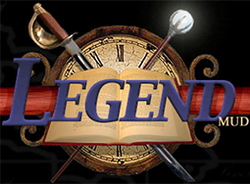"A Story About a Tree"
Koster wrote "A Story About a Tree", a short essay and epitaph about the reported real-world death of a Norwegian LegendMUD player named Karyn and the manner in which the game's community grieved. [6] Richard Bartle considered the incident to be a key event in the development of virtual worlds' ethics, similar to "A Rape in Cyberspace". [7] The 'death' demonstrated that people can develop feelings for each other via the virtual world medium, thus experiencing real emotions about somebody they've never met, even an entirely fictional persona. "A Story About a Tree" is considered as a major counterargument against the "it's just a game" point of view on virtual worlds. Furthermore, it showcased that while being a very real object of grief to one party, it can indeed remain just a game for another. [7]
While working on a documentary film about virtual reality in 2002, Tracy Spaight was spurred to investigate Koster's story after a conversation with Bartle. Spaight found that Karyn had been using a photo of 1995 Frøken Norge (now called Miss Norway) finalist Trine Solberg Lepperød. Lepperød told Spaight that this photo had not been published and she did not know how Karyn could have acquired it, adding "I was scared by all these letters this 'Karyn' person got, since the picture is of me and I am alive!" [6]
Spaight was unable to corroborate the circumstances of Karyn's death, reported as a crash on the E6 highway near Skogn between a Volkswagen and a test driven Porsche 911 that killed three people on 29 January 1998. He found that although a crash did occur there on that date, it involved a car and a truck and killed one older woman. In addition, though Karyn spoke Norwegian and claimed to be using her real-life name, her name would be very unusual in Norway. [6]
Spaight ultimately speculates that Karyn may have been a male player experimenting with a female gender presentation who decided to discontinue that experiment, using a faked death to do so. After publishing his investigation to Salon.com , Spaight claimed to have identified a male player with Karyn but was unable to make contact. He reiterates that Karyn's actions "invite players to reflect on how their words and actions in a virtual world can affect real people in the real world." [6]

